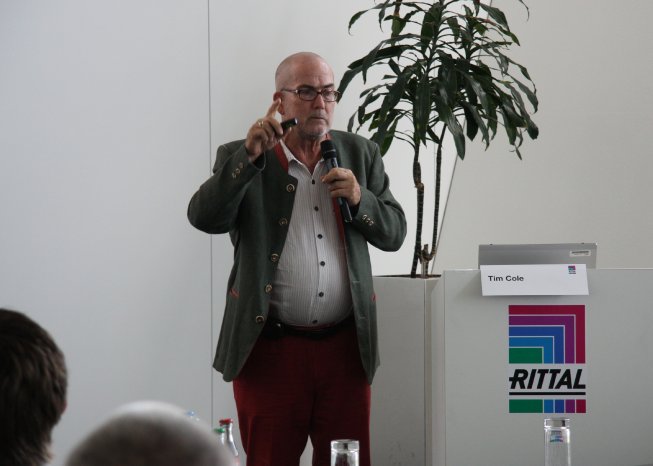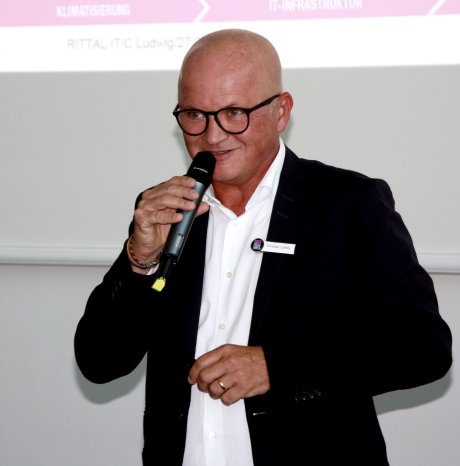“Are you ready for the digital transformation?” asked IT publicist Tim Cole, challenging his audience at Rittal’s IT practical days – and with good reason. According to the latest IDC Benchmark Assessment, a fifth of German businesses are still adopting a wait-and-see approach to digitalization. Only 16 percent of companies have become market leaders by acting as digital transformers.
“Data is the petroleum of the 21st century”
In exploring the three megatrends of the 21st century – digitalization, networking and mobility – Cole quoted futurist and blogger Gird Leonhard, who calls digital data the “petroleum of the 21st century”. One difficulty, he maintained, was that numerous processes and pieces of information are already digitalized and data volumes are growing rapidly, but this data can often not be located. He put this down to inadequate networking and compared the situation to an archipelago of digital islands. Achieving a breakthrough here was, he said, one of the biggest challenges facing companies in the next 10-15 years. Cole recommended that companies view their own data as part of their assets and use it to derive information for the future. Companies that succeed in creating links between apparently unrelated items of data can, he contended, use predictive analysis methods to cut costs by forecasting future events. “An item such as a cooling unit can then generate a system message indicating that it needs servicing before it breaks down and causes production downtime,” he explained.
Data center technology in transition – from standards to the cloud
The workshops also focused on technical progress, with industry experts addressing topics such as “The future-proof data center – planning and operating challenges” and “Modularity and efficiency of edge and container data centers”. One key question was how the revolution in data center technology is impacting on company practice.
“If we look at German data centers, we’re not yet sufficiently prepared for smart factories, smart cities and the Internet of Things,” warned Dr Sebastian Ritz, founder and CEO of iNNOVO Cloud GmbH. In Germany, he revealed, between sixty and seventy percent of IT is hosted in server rooms rather than secure data centers (private data centers or colocation) or private/public clouds. Given the low levels of in-house capacity utilization – often well below 50 percent – scalability and commercial benefits are two further arguments for giving preference to hybrid cloud models, he insisted.
According to Dr Ritz, two things are particularly important. “Firstly, SMBs must be able to master the digital revolution commercially if they are offered data center resources they can hire. And secondly, new technologies like the private or public cloud need trust,” he stressed. This trust comes from reference projects and personal contact, he said, adding that it is important to SMBs that they can look their business partner in the eye when dealing with strategic and business-critical IT. More than anything else, he argued, companies trust people who can guarantee security and smooth running.
First-hand insights and business knowledge
“We focused on dialogue between customers and experts, because digitalisation continues to cause uncertainty and throw up numerous questions. These questions were discussed at the workshops and answered using clear examples, including the issue of trust for new technologies like the cloud,” said Christian Ludwig, Vice President Sales IT at Rittal, who hosted the company’s IT practical days.



